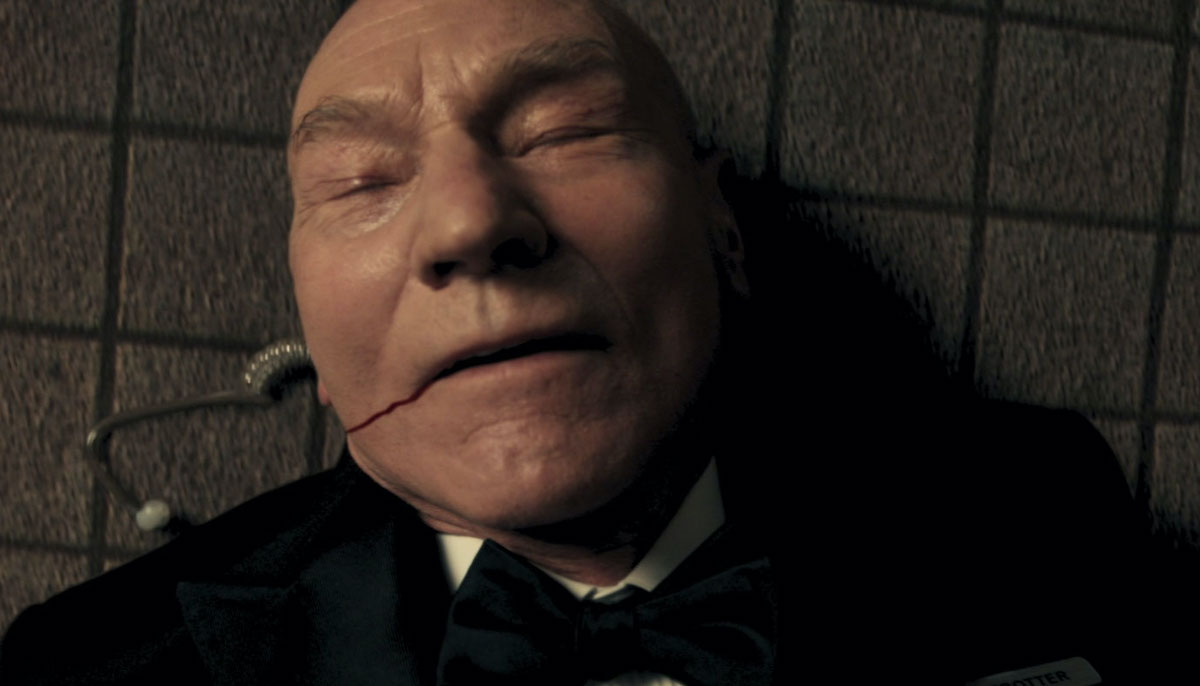This entry was written during the 2023 WGA and SAG-AFTRA strikes. Without the labor of the writers and actors currently on strike, this television series wouldn’t exist. To learn more, visit the WGA strike hub and the SAG-AFTRA strike site.
“We’re losing him!”
Here it is: the one where I stopped watching Star Trek: Picard.
In my association with Star Trek as a franchise, I have stopped watching a series exactly three times. The first was during the second season of Enterprise (back when it was still called, just, “Enterprise“), because that show is worse than Star Trek: Voyager, which was itself mercilessly bland (and I’d just endured seven years of it). The second time was in the fourth season of Star Trek: Discovery, a series I followed through its (what was it?) fifteen changes of creative teams (and narrative directions) before I realized that I no longer cared about any of the principal characters or ongoing storylines. And the third time was here, in the sixth episode of the second season of Star Trek: Picard: the one where Picard gets mowed down by a car being driven by an out-of-control Brent Spiner, cuz reasons.
For whatever reason, the La Sirena crew is heisting some kind of a ballroom function being thrown for Renée Picard, Jean-Luc’s ancestor, who is going to fly the Picard equivalent of the Artemis mission, but is suffering from substantial mental health crises in the days leading up to the launch. Never mind the fact that The Next Generation (or was it Nemesis?) made a rather nice point of the fact that before Jean-Luc, no Picard had ever caught the explorer bug, or left the Terran solar system, a piece of continuity which I realize this new plotline does not technically negate, but certainly does in spirit. One of the (evidently, many) creative briefs for Picard season two comes from Patrick Stewart’s desire to address his real-life mother’s real-life struggles with mental health issues, which this season will essay in a two-pronged attack. Picard’s mother will become the Madwoman of Chateau Picard, which we’ll get to next week; but before that, poor Renée Picard will suffer a crisis of confidence that puts not just her mission at risk, but (cuz, more reasons) the entire future of the human race.
I’ve written before about the cruelty of this season of Picard and its take on mental health; I’ll not retread those words here. I will say, unequivocally, that this episode is terrible. It’s childish, stupid, cheap-looking and embarassing. Per the previous episode, it further demonstrates the redundant doubling that seems to plague this season, giving Picard’s ancestor a mental health crisis only to give Picard’s mother a mental health crisis one episode later. For all of Stewart’s on-the-record desire to explore the impacts of being raised by a person with “struggles,” no one involved seems to have any real willingness to address the idea with insight or compassion, let alone a basic functional understanding that postwar 20th Century Britain and the 24th Century are, uh, not the same thing, re: humanity’s ability to treat and understand mental illness. And all of this is before they make poor Agnes, under the thrall of the Borg Queen (and another character this season dealing with significant psychiatric burdens), bust into “Shadows of the Night” in a red dress before walking off into the Los Angeles hinterlands, controlled by a cybernetic demon. What a catastrophe.
My abandonment of Picard didn’t take. It was a week or two after “Two of One” aired that Paramount began marketing the return of the entire Next Generation cast for Picard‘s third and final season; and about a month further before I figured, fuck it, if I was going to inevitably watch season three, I might as well finish off season two. As is often the case with legacy sequels, a reasonable case can be made that I shouldn’t have bothered; shouldn’t have bothered with this series, as a whole, in the first place. Revisiting the markers of our coming of age is almost inevitably disappointing; nostalgia is a poor, and ultimately vapid, refraction of the things one holds dear. I’ll forever be grateful for the things I came to, as a result of loving Star Trek: The Next Generation when I was a teenager. But the people, whoever they are, who think that Picard — any part of it, season one, two, or three — lived up to that love? I think they’re out of their fucking minds.
Blogging the Next Generation: Picard runs Thursdays on tederick.com as I work my way through every episode of Star Trek: Picard. The original BTNG did the same for Star Trek: The Next Generation.
